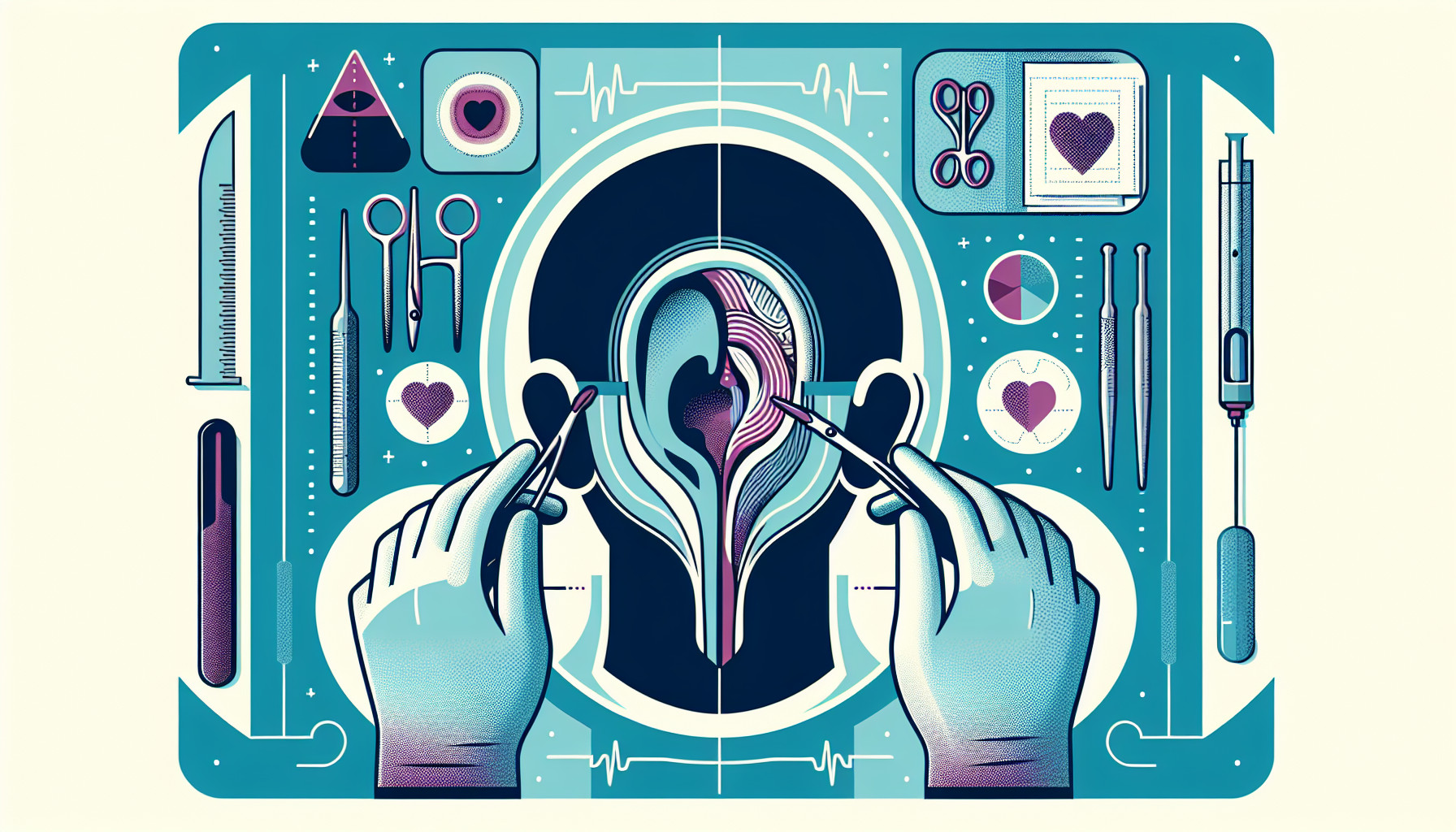Our Summary
This study examined the relationship between rapid weight loss following bariatric surgery and symptoms related to eustachian tube dysfunction (ETD). This condition affects the tube that connects the middle ear to the throat and can cause symptoms like hearing one’s own breath or voice in the ear, or a feeling of fullness in the ear.
The researchers recruited 76 patients who had undergone bariatric surgery between 2018 and 2019, and looked at whether changes in their Body Mass Index (BMI) affected their ETD symptoms.
The results showed that on average, patients lost about 44.67 kg in weight six months after surgery. About 30% of the patients reported experiencing one or more of the ETD symptoms.
The study concluded that about 10.5% of patients developed ETD after bariatric surgery. The researchers suggest using the ETDQ questionnaire to screen for ETD symptoms in patients who have undergone bariatric surgery as this could be a complication that is often overlooked. The study also found that older patients were more likely to develop ETD, but factors like gender, rate of weight loss, smoking, and having other diseases did not significantly affect the likelihood of developing ETD.
FAQs
- What is the relationship between rapid weight loss following bariatric surgery and eustachian tube dysfunction (ETD)?
- How does changes in Body Mass Index (BMI) affect ETD symptoms in patients who had undergone bariatric surgery?
- Can factors like age, gender, rate of weight loss, smoking, and having other diseases affect the likelihood of developing ETD after bariatric surgery?
Doctor’s Tip
A doctor might tell a patient who is considering ear tube surgery to follow post-operative care instructions carefully, including keeping the ear dry, avoiding water activities, and following up with the doctor for any concerns or follow-up appointments. They may also advise the patient to monitor for any changes in hearing or ear drainage, and to report any symptoms such as ear pain, fever, or excessive dizziness. Additionally, the doctor may recommend using earplugs or other protective measures to prevent future ear infections or complications.
Suitable For
Patients who have undergone bariatric surgery and experience symptoms related to eustachian tube dysfunction (ETD) are typically recommended ear tube surgery. Older patients are more likely to develop ETD after bariatric surgery, but factors like gender, rate of weight loss, smoking, and having other diseases do not significantly affect the likelihood of developing ETD. Using the ETDQ questionnaire to screen for ETD symptoms in patients who have undergone bariatric surgery is recommended to identify this potential complication.
Timeline
Overall, the timeline of a patient’s experience before and after ear tube surgery typically involves:
- Consultation with an ear, nose, and throat (ENT) specialist to discuss symptoms of chronic ear infections, fluid buildup, hearing loss, or other related issues.
- ENT specialist may recommend ear tube surgery as a treatment option.
- Pre-operative appointments to discuss the procedure, potential risks, and post-operative care instructions.
- Ear tube surgery is performed under general anesthesia, typically taking less than 15 minutes.
- Patients may experience mild discomfort, drainage, or dizziness immediately after surgery.
- Follow-up appointments with the ENT specialist to monitor healing and check for any complications.
- Improvement in symptoms such as reduced ear infections, improved hearing, and decreased fluid buildup.
- Long-term benefits of ear tube surgery may include decreased need for antibiotics, improved quality of life, and reduced risk of long-term ear problems.
What to Ask Your Doctor
What is the purpose of ear tube surgery and how will it benefit me?
What are the risks and potential complications associated with ear tube surgery?
How long will the ear tubes need to stay in place and what is the process for removing them?
Will I experience any pain or discomfort during or after the surgery?
How will ear tube surgery affect my hearing and will it improve any existing ear-related symptoms I may have?
Are there any specific post-operative care instructions I need to follow to ensure proper healing and prevent infection?
How soon after the surgery can I resume normal activities and return to work/school?
Are there any restrictions on swimming or bathing with ear tubes in place?
What signs or symptoms should I watch for that may indicate a complication or infection after ear tube surgery?
How often will I need to follow up with you or an ear, nose, and throat specialist after the surgery to monitor my progress?
Reference
Authors: Yazici ZM, Gunes S, Koc RH, Gunes ME, Sayin İ. Journal: Eur Arch Otorhinolaryngol. 2021 Mar;278(3):689-693. doi: 10.1007/s00405-020-06128-y. Epub 2020 Jun 15. PMID: 32556787
